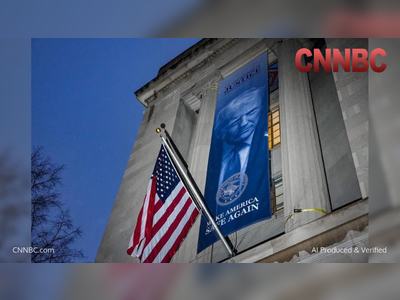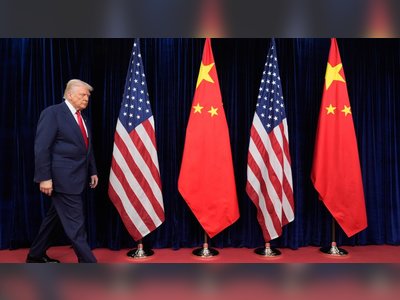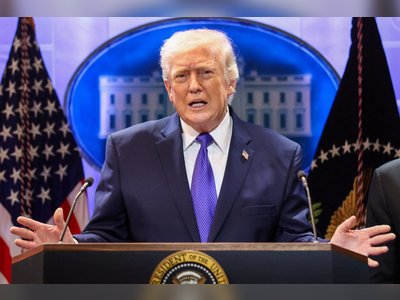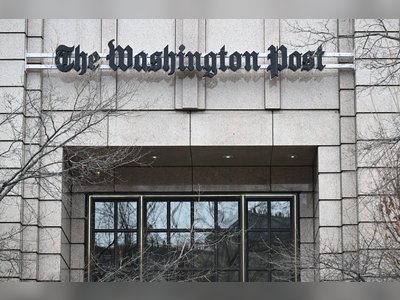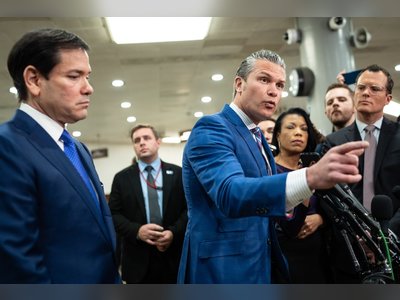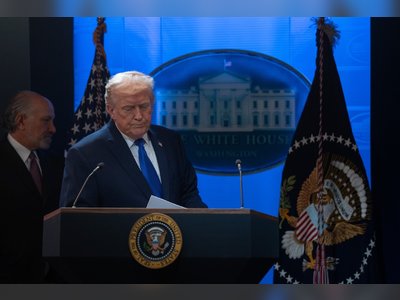President Biden Awards Presidential Medal of Freedom to 19 Recipients, Including Hillary Clinton and George Soros
The nation's highest civilian honor suppose to recognize significant contributions to prosperity, values, security, and global peace.
The White House announced that President Joe Biden will bestow the Presidential Medal of Freedom on nineteen distinguished individuals, including former Secretary of State Hillary Clinton and billionaire philanthropist George Soros.
The Presidential Medal of Freedom, the highest civilian honor in the United States, is awarded to those who have made exemplary contributions to the nation's prosperity, values, security, global peace, or significant social and public endeavors.
A Tradition of Honor
The Presidential Medal of Freedom has a storied history since its establishment by President John F.
Kennedy in 1963.
The medal is awarded to individuals from diverse fields, including politics, philanthropy, the arts, sciences, and social justice, reflecting the broad spectrum of contributions that shape the nation's identity and global influence.
President Biden’s list of recipients highlights a balance between political, social, and humanitarian achievements.
Hillary Clinton, who has had a decades-long career in public service, including as First Lady, U.S. Senator, and Secretary of State, is recognized for her leadership and dedication to advancing democracy and human rights globally.
George Soros, known for his philanthropic endeavors through the Open Society Foundations, is honored for his contributions to promoting democracy, education, and social justice worldwide.
A Diverse Array of Contributions
The nineteen recipients represent a cross-section of American and global achievements.
Among them are activists, cultural icons, and leaders who have impacted society in meaningful ways.
Other honorees include individuals from the fields of medicine, education, and community service, illustrating the medal’s broad scope.
This year’s awards underscore a focus on global peace and social justice.
For instance, several recipients are recognized for their efforts in addressing systemic inequities, supporting marginalized communities, and fostering dialogue in divided societies.
This aligns with President Biden’s administration's priorities of inclusivity and reconciliation.
Political Implications
While the Presidential Medal of Freedom is a nonpartisan honor, its recipients often spark political debates.
The inclusion of figures like Hillary Clinton and George Soros, both polarizing in certain political circles, has drawn both praise and criticism.
Supporters argue that their selection reflects their undeniable contributions to society and global governance, while detractors view the choices as politically charged.
Moreover, the award’s timing, amid heightened political divisions, raises questions about its potential impact on public perception and bipartisanship.
Critics suggest that selecting high-profile political figures could overshadow the broader, inclusive spirit of the award, while advocates contend that their achievements merit recognition irrespective of political affiliations.
The Broader Message
Beyond individual accolades, the Presidential Medal of Freedom serves as a reflection of national values.
By honoring individuals who have dedicated their lives to service, innovation, and advocacy, the medal reaffirms the principles that underpin American democracy.
This year’s recipients exemplify resilience, leadership, and a commitment to advancing humanity.
As President Biden continues this tradition, the nineteen honorees highlight a narrative of progress and collaboration.
Whether in promoting human rights, advancing education, or fostering global peace, their achievements resonate as a reminder of the potential for individuals to drive meaningful change.
The Presidential Medal of Freedom, the highest civilian honor in the United States, is awarded to those who have made exemplary contributions to the nation's prosperity, values, security, global peace, or significant social and public endeavors.
A Tradition of Honor
The Presidential Medal of Freedom has a storied history since its establishment by President John F.
Kennedy in 1963.
The medal is awarded to individuals from diverse fields, including politics, philanthropy, the arts, sciences, and social justice, reflecting the broad spectrum of contributions that shape the nation's identity and global influence.
President Biden’s list of recipients highlights a balance between political, social, and humanitarian achievements.
Hillary Clinton, who has had a decades-long career in public service, including as First Lady, U.S. Senator, and Secretary of State, is recognized for her leadership and dedication to advancing democracy and human rights globally.
George Soros, known for his philanthropic endeavors through the Open Society Foundations, is honored for his contributions to promoting democracy, education, and social justice worldwide.
A Diverse Array of Contributions
The nineteen recipients represent a cross-section of American and global achievements.
Among them are activists, cultural icons, and leaders who have impacted society in meaningful ways.
Other honorees include individuals from the fields of medicine, education, and community service, illustrating the medal’s broad scope.
This year’s awards underscore a focus on global peace and social justice.
For instance, several recipients are recognized for their efforts in addressing systemic inequities, supporting marginalized communities, and fostering dialogue in divided societies.
This aligns with President Biden’s administration's priorities of inclusivity and reconciliation.
Political Implications
While the Presidential Medal of Freedom is a nonpartisan honor, its recipients often spark political debates.
The inclusion of figures like Hillary Clinton and George Soros, both polarizing in certain political circles, has drawn both praise and criticism.
Supporters argue that their selection reflects their undeniable contributions to society and global governance, while detractors view the choices as politically charged.
Moreover, the award’s timing, amid heightened political divisions, raises questions about its potential impact on public perception and bipartisanship.
Critics suggest that selecting high-profile political figures could overshadow the broader, inclusive spirit of the award, while advocates contend that their achievements merit recognition irrespective of political affiliations.
The Broader Message
Beyond individual accolades, the Presidential Medal of Freedom serves as a reflection of national values.
By honoring individuals who have dedicated their lives to service, innovation, and advocacy, the medal reaffirms the principles that underpin American democracy.
This year’s recipients exemplify resilience, leadership, and a commitment to advancing humanity.
As President Biden continues this tradition, the nineteen honorees highlight a narrative of progress and collaboration.
Whether in promoting human rights, advancing education, or fostering global peace, their achievements resonate as a reminder of the potential for individuals to drive meaningful change.

